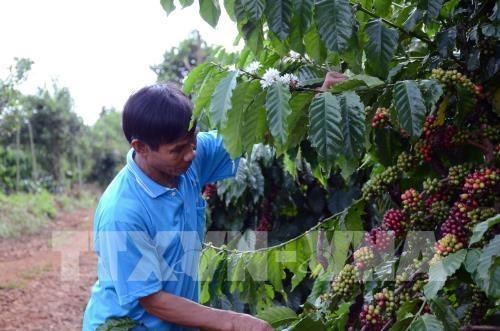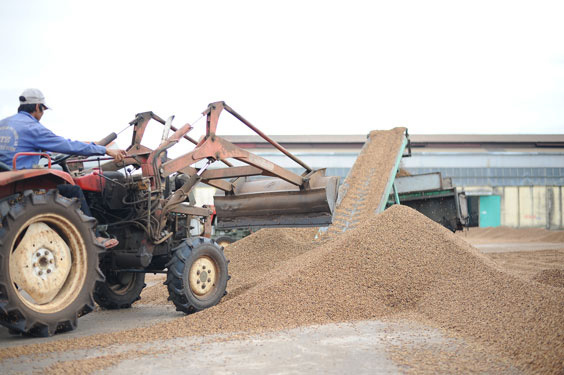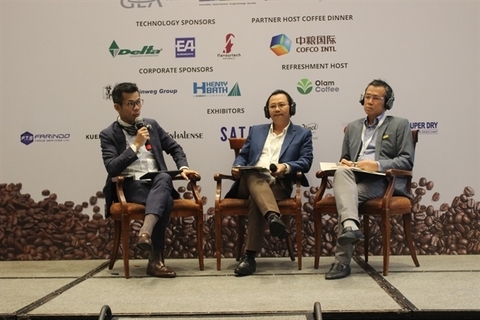 |
|
|
The Vietnamese coffee sector has experienced a strong fall in export volume and price from the start of the year. The Ministry of Agriculture and Rural Development said that abundant supply, together with the global downturn and escalating trade tensions, was behind the drop.
With prices at a low point, Vietnamese farmers are reluctant to invest heavily in their next crops, so output is forecast to fall by 15 percent from the 2018-2019 crop to 25.5 million sacks.
According to Nguyen Trung Kien from the Institute for Policy Strategy for Agriculture and Rural Development, domestic coffee prices have increased slightly on the back of higher global prices.
In fact, coffee production in Brazil, the world’s top coffee grower, fell 10.5 percent in the 2018-2019 crop, resulting in a surge in the prices of Arabica and Robusta coffee.
Currently, Vietnamese coffee is present in more than 80 countries and territories worldwide, and accounts for 14.2 percent of the global market share (just behind Brazil).
Chairman of the Buon Ma Thuot Coffee Association Trinh Duc Minh said that in a bid to create a coffee value chain and increase the value of the sector, competent authorities should pen long-term policies for coffee production, with a focus on supporting coffee growers with advanced technologies, cultivating techniques, and market access, among others.
From January-November, Vietnam exported more than 1.4 million tonnes of coffee for 2.5 billion USD, a fall of 15 percent in volume and 22 percent in value compared to the same period last year./.VNA

Earnings from coffee, pepper are modest because of poor branding
Vietnam is one of the biggest coffee and pepper exporters in the world, but the money it earns is modest.

VN coffee sector to expand intensive processing to add value
Vietnam has set itself a target of increasing the ratio of processed coffee from the current 10 per cent to 30-40 per cent by 2030 to add value, the Viet Nam Coffee Week heard in HCM City on Wednesday.
 A global glut of coffee has come to an end, and the price of coffee is likely to go up in the near future, according to industry insiders.
A global glut of coffee has come to an end, and the price of coffee is likely to go up in the near future, according to industry insiders.